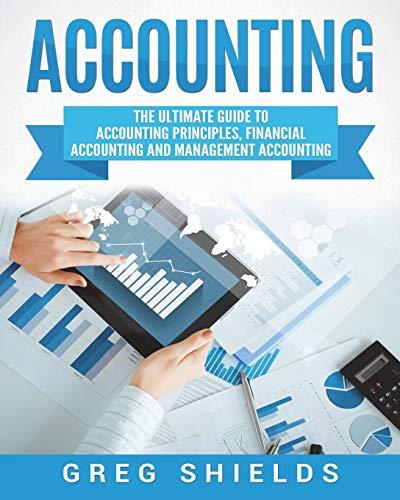Question
You have been assigned to the audit of the financial statements of Coffee Break Ltd. (CB) for its year ending December 31, 2021. You are
You have been assigned to the audit of the financial statements of Coffee Break Ltd. (CB) for its year ending December 31, 2021. You are excited because this is your first assignment since your recent promotion to manager. The company started five years ago, and it is in the business of obtaining coffee beans from around the world under a fair-trade policy, roasting the beans locally, and selling them to coffee shops in Quebec and Ontario. CBs business model is to only purchase their raw coffee beans from certified fair-trading plantations around the world where the agricultural workers receive a fair wage and share of profit. Investors in CB shares are primarily ethical investors and mutual funds that concentrate on investing in companies that have high corporate responsibility ratings.
CB is a new client of your firm. The predecessor auditor, Eva Garnier, a partner in a small local firm, resigned from the audit because she is planning to retire from practice soon. Since the two other partners at her firm also plan to retire in a few years, she felt it would be in CBs best interest to switch to another firm that could continue the audit for a longer time. In Ms. Garnier response to your inquiries, she indicated that CB had been an excellent audit client. Management is very competent and control conscious, ensuring employees keep accurate records and follow all control procedures. Misstatements uncovered by the auditor, even immaterial ones, have always been promptly corrected, and they have always paid the audit fees in full, and in due time. The predecessor auditor also noted that management has given its permission for her to give its new auditor access to her prior years audit files.
Today is December 10, 2021. You have just met with Kim Clarke, CBs chief accountant, and have been provided with the draft of November 30, 2021 financial statements (exhibit 1).
You have prepared notes from the meeting (exhibit 2). You plan to send your preliminary audit planning memo to the audit partner based on what you have learnt so far. At this preliminary stage, the planning memo will only include the risk assessment, a preliminary evaluation of the materiality, and an indication of key risky areas that will necessitate increased audit effort this year.
Exhibit 1 - Financial statement summarized information
| (in $CAN thousands) | |||
| Unaudited Nov. 30 2021 | Audited Dec 31 2020 | Audited Dec 31 2019 | |
| Total assets | 20,462 | 21,631 | 20,483 |
| Sales | 19,853 | 20,627 | 19,278 |
| Gross profit | 9,340 | 9,797 | 9,088 |
| Income before tax | 3,476 | 3,664 | 3,411 |
Exhibit 2 Notes from Dec 10, 2021 meeting with Kim Clarke (Chief accountant)
- The company is very profitable. Management and senior employees participate in a profit-sharing plan that gives them above-average earnings.
- Employees are proud to work for CB, and the company has won numerous awards for its community and environmental initiatives.
- Last year the audit team uncovered an error in the ending inventory balance in the amount of a $65,000 overstatement. The misstatement has been corrected.
- CB receives inventory from various countries in South and Central America. Purchases are done in various currencies (USD, CAD, and other local currencies). CB usually signs one-year agreements with its suppliers rather than long-term contracts. The prices of coffee beans fluctuate on world markets, but generally there are adequate supplies available and according to management, this is expected to continue in the future. CB does not use derivatives to manage the risks of price or currency rate changes fluctuations.
- CB has approximately 10% of the coffee bean market in Ontario and 15% in Quebec. Its coffee is considered a premium product because of its ethical sources but also because it purchases only the highest quality of Arabica beans and uses a special just-in-time roasting and delivery process that puts the very best quality product into stores at the peak of its flavour. About 75% of its sales are to independent neighbourhood coffee shops. CB also sells to one major coffee shop chain and supplies an up-market grocery store chain. Fair trade coffees can sell for 20 to 25% more than coffee from other sources and have enjoyed increased popularity over the past few years.
solve: Apply the MacDonald methodology to solve the case
Requirement: A planning memo that will only include the risk assessment, a preliminary evaluation of the materiality, and an indication of key risky areas that will necessitate increased audit effort this year.
Step by Step Solution
There are 3 Steps involved in it
Step: 1

Get Instant Access to Expert-Tailored Solutions
See step-by-step solutions with expert insights and AI powered tools for academic success
Step: 2

Step: 3

Ace Your Homework with AI
Get the answers you need in no time with our AI-driven, step-by-step assistance
Get Started


